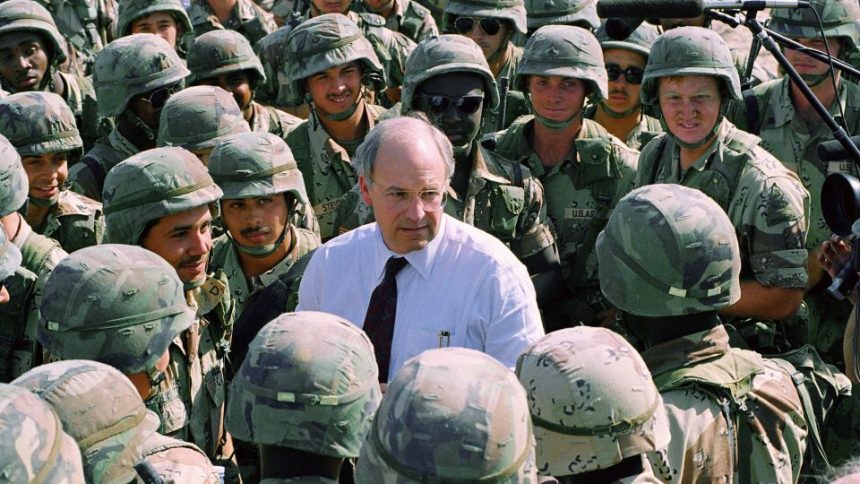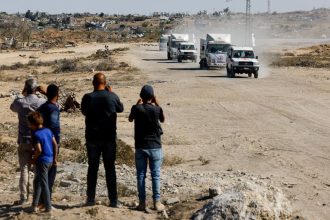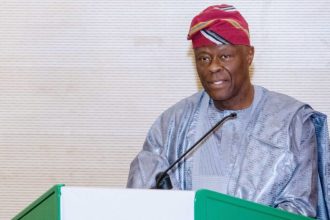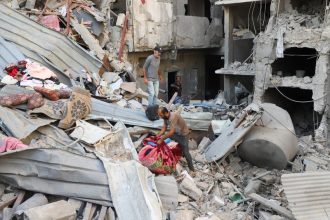He was defense secretary under President George H.W. Bush during Operation Desert Storm. He was vice president under the younger Bush during the US-led invasions of Afghanistan and Iraq. Dick Cheney, who passed away Tuesday at the age of 84, was arguably one of the most powerful and influential US vice presidents in history.
Cheney was, it was said again and again on the day of his passing, President George W. Bush’s chief operating officer.
And as COO, he was one of the most forceful and outspoken proponents for regime change in Iraq – perhaps his most lasting, and darkest, legacy.
“Simply stated,” he said at the annual convention of the Veterans of Foreign Wars in August 2002, “there is no doubt that Saddam Hussein now has weapons of mass destruction. There is no doubt he is amassing them to use against our friends, against our allies, and against us.”
Simply stated, the Iraqi president didn’t have any weapons of mass destruction. He was not amassing them to use against anyone. Yet those mythical “WMDs” were the pretext for a war and subsequent costly, clumsy, and heavy-handed occupation that opened a Pandora’s box of bloodshed, displacement, terrorism and tyranny. The box is still open.
The US-led military campaign, which Cheney helped plan, was brilliant from a US perspective. Fast and decisive, it took just 20 days for American and coalition troops to invade Iraq and reach Baghdad.
The occupation, for which Cheney must also bear some responsibility, was a catastrophe.
Within weeks of Hussein’s fall in April 2003, trouble began in cities like Fallujah and Ramadi and after a few months the US-led coalition was struggling, and in many areas failing, to maintain order.
The failures of that occupation were many, relating to security, governance, the economy, and provision of basic municipal services.
Simply put, the Americans had willingly stumbled into a situation where they were largely clueless (or, critics would argue, willingly indifferent) to the complexities of an ancient society.
“Saddam knew his opponents, and killed them,” Baghdad shop owner Abu Kazim told me a year after the US-led invasion. “But the Americans, even if they don’t mean it, don’t know who is who. They’ve put us all in danger.”
This was also when a torture scandal emerged at Baghdad’s Abu Ghraib prison. Images of Iraqi detainees being stripped naked and abused, published by the media, shocked the world.
“They were cursing at us. ‘Shut up! F**k you! Shut the f**k up!” Haydar Sabbar Ali told me.
Haydar was prisoner 13077 at Abu Ghraib, one of those photographed by the American army prison guards in various positions of agony.
“If you talked, they hit you hard in sensitive places, in the kidney, in the chest, in the throat,” Haydar told me in April 2004. “Our bodies were full of bruises.”
A traffic policeman during Hussein’s rule, Haydar was never charged, and in early 2004 was released.
Then Vice President Cheney condemned those behind the torture scandal, while at the same time defending water-boarding as a useful means of extracting vital intelligence (many intelligence experts say water-boarding is torture, and its victims will say anything to avoid further abuse).
Today, Iraq has stabilized. Baghdad is no longer a war zone. The country is still crippled by corruption, and it was only a few years ago that it managed (with US and coalition help) after several years of war, to defeat the Islamic State in Iraq and Syria (ISIS), itself a direct result of the US invasion and occupation. Iran, Baghdad’s arch enemy during Hussein’s rule, now enjoys significant influence in Iraq – another direct result of the US invasion.
Apart from the moral morass and human cost of America’s foreign military misadventures, there is the lasting economic damage of the wars of which Cheney was such an avid advocate. According to Brown University’s Costs of War Project, post September 11, 2001, conflicts cost the United States 8 trillion dollars.
The post 9/11 blunders in which Cheney played a part can be tied to the rise of ISIS, perennial instability in the Middle East, the migrant crisis and the crushing debt burden ($38 trillion and counting) that looms over the US economy.
It would be unfair to blame Iraq’s plight, and the broader plight of the Middle East, on Cheney alone. After all, he is just one in a long line of American leaders who has played fast and loose in the region with dire consequences and left the United States in an ever more precarious state.
For more CNN news and newsletters create an account at CNN.com









